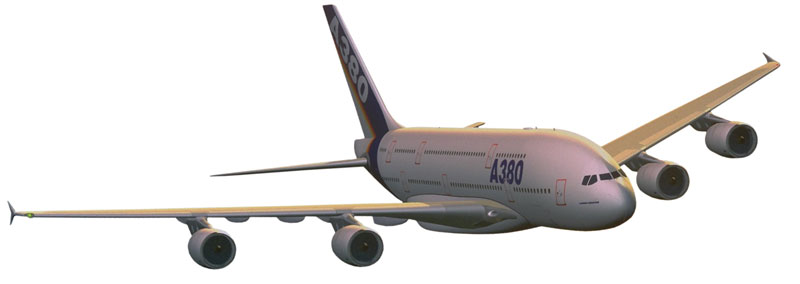As the tool advances metal moves past it to form a joint without melting. It is of great interest to the aircraft industry to replace riveting both to reduce weight and remove the holes that act as stress concentrators from which cracks can form. However as with conventional welding FSW can introduce substantial residual stresses which can have a detrimental impact on service life. We used neutron diffraction as an atomic strain gauge to see if it was possible to reduce the weld stresses by tensioning the plates as they are joined. We found that the stresses decrease linearly with the level of tension applied. In fact almost no stress was present after welding under tensile stresses 30% of the yield stress. Larger stresses were found to introduce compressive stresses into the weld region. This work is being used to optimise the weld stresses to improve performance and joint lifetimes.

Large aircraft such as the A380 superjumbo contain over 300,000 rivet holes.
View full-size image
DG Richards, PB Prangnell, PJ Withers (University of Manchester), SW Williams (Cranfield University), A Wescott (BAE Systems), MJ Poad (Airbus UK), EC Oliver (ISIS)
Research date: December 2007
Further Information
Prof. P.J. Withers, DG Richards et al., Materials Science Forum 524-525 (2006) 71
